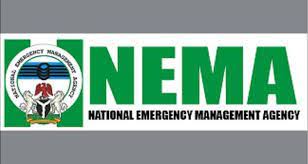News Investigators/ The National Emergency Management Agency (NEMA) has called for continued support in capacity building, search and rescue, data processing, risk mapping, and early warning systems to address Nigeria’s recurring flood disasters.
Simon Katu, Assistant Director, Disaster Risk Reduction, NEMA, said this during a visit by the Japan International Cooperation Agency (JICA) to NEMA headquarters in Abuja on Friday.
The News Agency of Nigeria (NAN) reports that the visit was aimed at discussing emergency support to flood related disasters following this year’s predictions of severe flooding that may affect many communities in Nigeria.
Mr Katu, who provided an in-depth overview of NEMA’s operations, its structure, and the ongoing challenges faced by both the agency and the country, said that the meeting was timely.
He said that Floods had become a recurring nightmare, with the past four to five years seeing particularly devastating impacts.
“Floods are at the top of our disaster table. They affect millions, displace hundreds of thousands and destroy critical infrastructure.
“But we also face protracted insurgencies, resource-based conflicts and disease outbreaks like monkeypox, meningitis, cholera, malaria and even Ebola.
“The Sahel and Lake Chad Basin regions are especially vulnerable, with economic and human resources under immense pressure,” he said.
Mr Katu said that the focus was on community disaster risk reduction.
“We want people to use the information we provide to protect themselves
“Early warning has improved, with messages delivered in local languages and through various media. But infrastructure deficits and urban planning failures remain major obstacles.
“The agency is also keen to learn from Japan’s experience in flood-resilient infrastructure and relocation planning. We want to tap into Japan’s expertise and explore exchange programmes and joint simulations,” he said.
According to him, between 2024 and 2025, an estimated 35 states were affected by disasters, with 1.2 million people displaced.
“Critical infrastructure, roads, bridges and health facilities were severely impacted. Loss of life and livelihood, particularly in riverine and low-lying communities, has been stark.
“When the rains come and the floods exceed their bounds, people’s daily sustenance is threatened.
“It is not just natural; poor urban planning, climate change, and population pressure compound the problem.”
Mr Katu said that NEMA had launched a national preparedness and response campaign, taking its message directly to communities across the country.
He said that officials of the agency visited 24 cities in 2024 and expanded to the entire country this year.
“We have prepositioned relief materials and are continuously building the capacity of both our agency and affected communities.
“Simulation exercises like the one currently underway in Anambra and another upcoming in Kano, are testing the readiness of stakeholders and partners.
“NEMA also provides technical support to states and local governments, recognising that some lack the capacity to deliver effective disaster management,” he said.
Mr Katu said that NEMA’s collaboration with international partners, including JICA, the United Nations, and the World Health Organisation, had been instrumental.
“We are grateful for the support, but we need more. Funding, logistics, and capacity building remain critical challenges.
“As Nigeria faces an increasingly complex disaster landscape, NEMA remains committed to protecting its people and building a more resilient nation.
“We are hopeful that this window of partnership will open even bigger opportunities. Together, we can make a difference.”
Keisuke Matsushita, JICA’s Project Formulation Advisor, outlined a vision for long-term collaboration to address Nigeria’s recurring flood disasters.
Mr Matsushita expressed condolences for the recent flooding that devastated communities across Nigeria.
He said that while emergency response remained critical, preparedness and capacity building were essential to reduce future suffering.
Mr Matsushita suggested that JICA and NEMA should work together to streamline logistical procedures, ensuring a swift and coordinated response to future emergencies.
He said that the ongoing discussions were just the beginning and require further technical engagement between both teams.
He referenced past training programmes for NEMA staff in Japan and expressed JICA’s commitment to developing a robust training initiative for disaster management, not only for NEMA but for the wider federal government.
“We will be organising workshops in Nigeria later this year by inviting experts in flood and water resource management to share knowledge with local agencies.
“This is a good opportunity for us to collaborate and provide expertise in flood disaster management,” Matsushita said.
NAN


